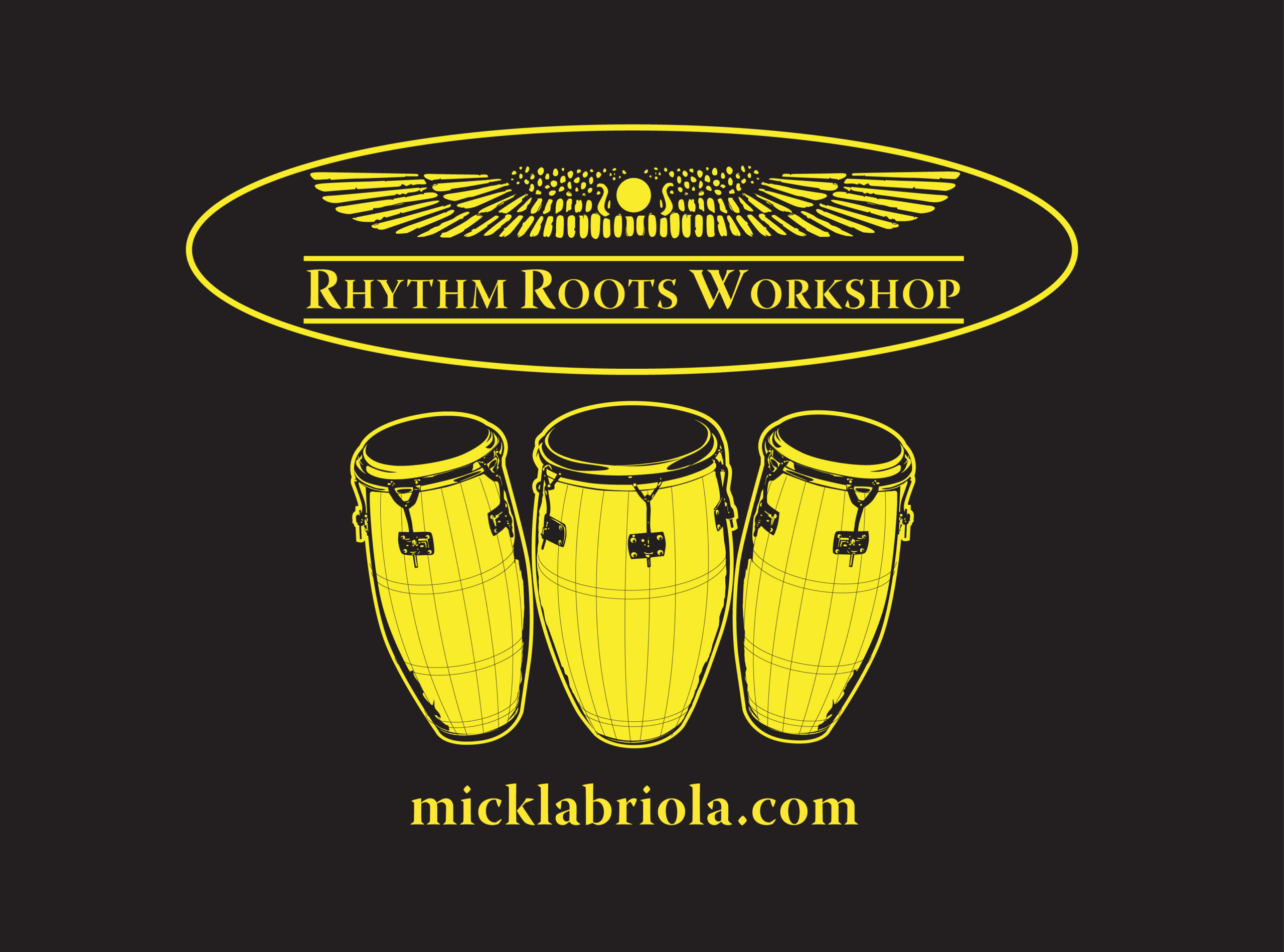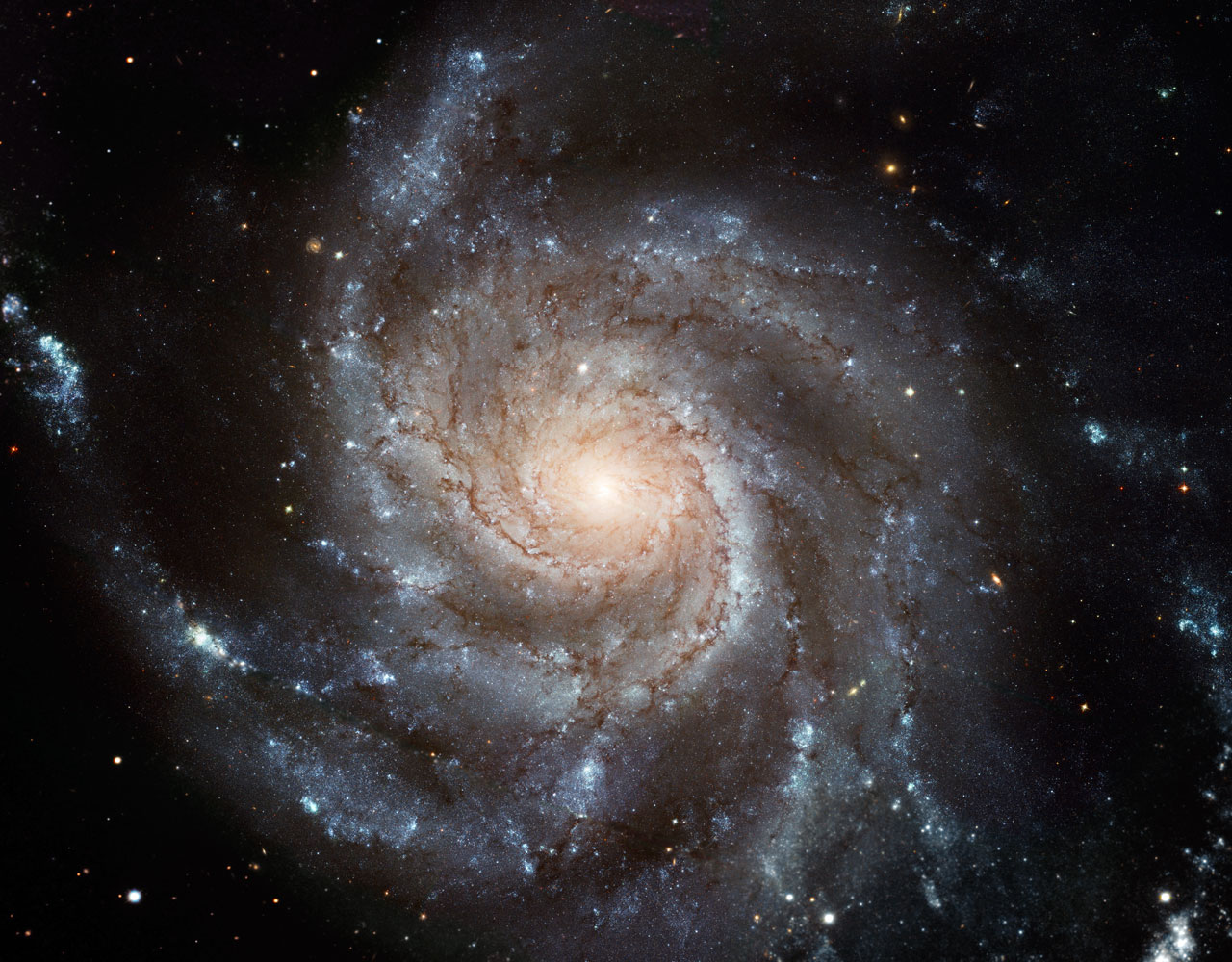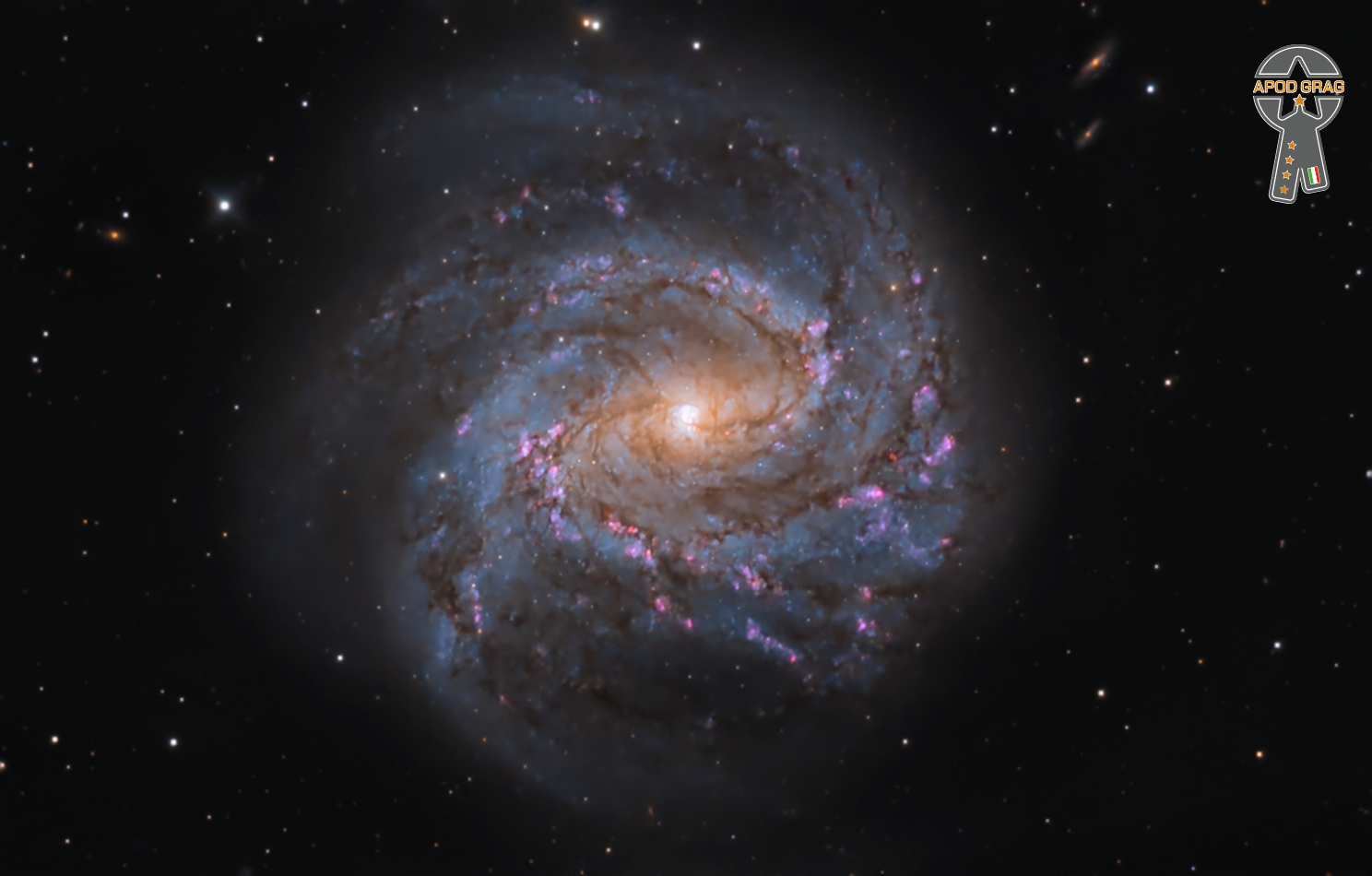Blog
The Pinwheel Galaxy (also known as Messier 101, M101 or NGC 5457) is a face-on spiral galaxy21 million light-years (6.4 megaparsecs) away from Earth in the constellation Ursa Major. It was discovered by Pierre Méchain in 1781 and was communicated that year to Charles Messier, who verified its position for inclusion in the Messier Catalogue as one of its final entries.
On February 28, 2006, NASA and the European Space Agency released a very detailed image of the Pinwheel Galaxy, which was the largest and most-detailed image of a galaxy by Hubble Space Telescope at the time.

more...
Eddie “Chank” Willis (June 3, 1936 – August 20, 2018) was an American soul musician. Willis played electric guitar and occasional electric sitar for Motown‘s in-house studio band, The Funk Brothers, during the 1960s and early 1970s.
Born in Grenada, Mississippi, Willis was known for his signature style of muted guitar riffs which added a distinctive tone or “color” to the beat, often timed with the snare, of the hundreds of hit songs recorded at Hitsville U.S.A. for Motown artists. Among the recordings Willis performed on are “Please Mr. Postman” by The Marvelettes, “The Way You Do the Things You Do” by The Temptations, “You Keep Me Hanging On” by The Supremes, and “I Was Made to Love Her” by Stevie Wonder.
Influences for Willis included Chet Atkins, Wes Montgomery, and Albert King. He played a Gibson Firebirdguitar on most of his early 1960s work, later moving on to use a Gibson ES-335. On recordings such as The Supremes’ “No Matter What Sign You Are”, Willis performed on a Coral sitar. He accepted an offer from Phil Collins to perform on his album of Motown and 1960s soul classics, Going Back. Willis died on August 20, 2018 in Gore Springs, Mississippi from complications of polio at the age of 82.
more...Al Harewood (June 3, 1923 – March 13, 2014) was an American jazz drummer and teacher, born in Brooklyn. As a musician Harewood worked with many jazz musicians including the J.J. Johnson/Kai Winding group, the Art Farmer/Gigi Grice band, David Amram, Betty Carter, and the Curtis Fuller–Benny Golson Sextet. He played on many jazz recordings under the leadership of Lou Donaldson, Horace Parlan, Ike Quebec, Dexter Gordon and Grant Greenand had a long association with saxophonist Stanley Turrentine from 1959 onwards.
He died in March 2014 at the age of 90.
more...Jimmy Rogers (June 3, 1924 – December 19, 1997) was an American Chicago blues singer, guitarist and harmonica player, best known for his work as a member of Muddy Waters‘s band in the early 1950s. He also had a solo career and recorded several popular blues songs, including “That’s All Right” (now a blues standard), “Chicago Bound”, “Walking by Myself” (his sole R&B chart appearance), and “Rock This House”.He withdrew from the music industry at the end of the 1950s, but returned to recording and touring in the 1970s.
Rogers was born Jay or James Arthur Lane in Ruleville, Mississippi, on June 3, 1924. He was raised in Atlanta and Memphis. He adopted his stepfather’s surname. He learned to play the harmonica with his childhood friend Snooky Pryor, and as a teenager he took up the guitar. He played professionally in East St. Louis, Illinois, with Robert Lockwood, Jr., among others. Rogers moved to Chicago in the mid-1940s. By 1946, he had recorded as a harmonica player and singer for the Harlem record label, run by J. Mayo Williams. Rogers’s name did not appear on the record, which was mislabeled as the work of Memphis Slimand His Houserockers.
more...Freda Josephine Baker (née McDonald; June 3, 1906 – April 12, 1975), naturalised as Joséphine Baker, was an American-born French dancer, singer and actress. Her career was centered primarily in Europe, mostly in her adopted France. She was the first black woman to star in a major motion picture, the 1927 silent film Siren of the Tropics, directed by Mario Nalpas and Henri Étiévant.
During her early career, Baker was among the most celebrated performers to headline the revues of the Folies Bergère in Paris. Her performance in the revue Un vent de folie in 1927 caused a sensation in the city. Her costume, consisting of only a short skirt of artificial bananas and a beaded necklace, became an iconic image and a symbol both of the Jazz Age and the Roaring Twenties.
Baker was celebrated by artists and intellectuals of the era, who variously dubbed her the “Black Venus”, the “Black Pearl”, the “Bronze Venus”, and the “Creole Goddess”. Born in St. Louis, Missouri, she renounced her U.S. citizenship and became a French national after her marriage to French industrialist Jean Lion in 1937. She raised her children in France.
She aided the French Resistance during World War II. After the war, she was awarded the Resistance Medal by the French Committee of National Liberation, the Croix de Guerre by the French military, and was named a Chevalier of the Légion d’honneur by General Charles de Gaulle. Baker sang: “I have two loves, my country and Paris.”
Baker refused to perform for segregated audiences in the United States and is noted for her contributions to the civil rights movement. In 1968, she was offered unofficial leadership in the movement in the United States by Coretta Scott King, following Martin Luther King Jr.‘s assassination. After thinking it over, Baker declined the offer out of concern for the welfare of her children.
On November 30, 2021, she was inducted into the Panthéon in Paris, the first black woman to receive one of the highest honors in France. As her resting place remains in Monaco Cemetery, a cenotaph was installed in vault 13 of the crypt in the Panthéon.
Freda Josephine McDonald was born on June 3, 1906, in St. Louis, Missouri. Her mother Carrie, was adopted in Little Rock, Arkansas, in 1886 by Richard and Elvira McDonald, both of whom were former slavesof African and Native American descent. Baker’s estate and some other sources identify vaudeville drummer Eddie Carson as her natural father, whilst other sources dispute this. Baker’s foster son Jean-Claude Baker wrote a biography, published in 1993, titled Josephine: The Hungry Heart, in which he discusses at length the circumstances surrounding Baker’s birth based on his research, concluding that Baker’s father was white, and that Baker knew that Carson was not her father.
https://www.youtube.com/watch?v=LdIGlWD9ScQ&t=69s
more...Starting on Fridays a 9 & 12 week back to back Rhythm Roots Workshop Residencies at two Ebenezer Care Locations. Ebenezer Loren on Park Assisted Living (https://www.ebenezercares.org/affordable-housing-loren-on-park) and Ebenezer Tower Apts (https://www.ebenezercares.org/affordable-housing-ebenezer-tower-apartments) both in south Minneapolis. Exploring world rhythms from a variety of cultural traditions.

Big, beautiful spiral galaxy M101 is one of the last entries in Charles Messier’s famous catalog, but definitely not one of the least. About 170,000 light-years across, this galaxy is enormous, almost twice the size of our own Milky Way. M101 was also one of the original spiral nebulae observed by Lord Rosse’s large 19th century telescope, the Leviathan of Parsontown. Assembled from 51 exposures recorded by the Hubble Space Telescope in the 20th and 21st centuries, with additional data from ground based telescopes, this mosaic spans about 40,000 light-years across the central region of M101 in one of the highest definition spiral galaxy portraits ever released from Hubble. The sharp image shows stunning features of the galaxy’s face-on disk of stars and dust along with background galaxies, some visible right through M101 itself. Also known as the Pinwheel Galaxy, M101 lies within the boundaries of the northern constellation Ursa Major, about 25 million light-years away.

Charles Robert Watts (2 June 1941 – 24 August 2021) was an English musician who achieved international fame as the drummer of the Rolling Stones from 1963 until his death in 2021.
Originally trained as a graphic artist, Watts developed an interest in jazz at a young age and joined the band Blues Incorporated. He also started playing drums in London’s rhythm and blues clubs, where he met future bandmates Mick Jagger, Keith Richards and Brian Jones. In January 1963, he left Blues Incorporated and joined the Rolling Stones as drummer, while doubling as designer of their record sleeves and tour stages. Watts’ first public appearance as a permanent member was in February 1963; he remained with the group for 58 years until his death, at which time he, Jagger and Richards were the only members of the band to have performed on every one of their studio albums.
Nicknamed “The Wembley Whammer” by Jagger, Watts cited jazz as a major influence on his drumming style. Aside from his career with the Rolling Stones, Watts toured with his own group, the Charlie Watts Quintet, and appeared in London at Ronnie Scott’s Jazz Club with the Charlie Watts Tentet.
In 1989, Watts was inducted into the Rock and Roll Hall of Fame. In 2004, he was inducted into the UK Music Hall of Fame with the Rolling Stones. He is often regarded as one of the greatest drummers of all time.
c
more...Pierre Favre (born 2 June 1937) is a Swiss jazz drummer and percussionist born in Le Locle, Switzerland.
1964 Pierre Favre joins Paiste: At the 1964 Paiste drummer meeting in Frankfurt, Pierre met the Paiste brothers who invited him to visit their factory in Nottwil. Since Pierre has always been interested in cymbals, he was most enthusiastic about accepting their invitation. The Paiste brothers were so impressed with his keen interest and attentive attitude, they offered him a position on their staff to take care of the most important task: cymbal development, quality control and to establish an education/drummer service dept. Pierre left Paiste as a full time employee in 1970 and was replaced by Fredy Studer.
He recorded the album Singing Drums (ECM, 1984) with Paul Motian and Nana Vasconcelos. He also appears on the John Surman album, Such Winters of Memory (1983). He has recorded with several well-known musicians, including Tamia, Michel Godard, Mal Waldron, Paul Giger, Jiří Stivín, Michel Portal, Samuel Blaser, the ARTE Quartett, and Barre Phillips.
more...Valaida Snow (June 2, 1904 – May 30, 1956) was an American jazz musician and entertainer who performed internationally. She was also known as “Little Louis” and “Queen of the Trumpet,” a nickname given to her by W. C. Handy.
Snow was born in Chattanooga, Tennessee. Her mother, Etta, was a Howard University-educated music teacher and her father, John, was a minister who was the leader of the Pickaninny Troubadours, a group mainly consisting of child performers. Raised on the road in a show-business family, where starting from the age of five, she began performing with her father’s group. By the time she was 15, she learned to play cello, bass, banjo, violin, mandolin, harp, accordion, clarinet, trumpet, and saxophone. She also sang and danced.
more...Rumba is a flamenco-adjacent state of mind, but also a part of flamenco. It’s the pop music of the Spanish Gypsies. It’s 4/4 time. It’s very common for ‘legit’ flamenco guitarists and singers to have a rumba on their records.
The rumba originated in Cuba and is a popular Latin American dance floor style, which has sexy and suggestive hip and body movements.
In their original Cuban form they had difficult and complicated rhythms, but by the time they reached Europe, a more simple style had developed. In the 1950s it was adopted by the gypsies, becoming the rumba gitana, which retained all the sensuality and charm of the gypsies. Later, in the 1970s Paco de Lucía and Cameron de la Isla transformed this style, which created an opening for hoards of flamenco fusion groups, such as the Gypsy Kings, who based there fusion on the rumba.
The first flamenco artist to record the rumba was La Niña de los Peines, and one of the best performers of the rumbawas the singer / guitarist Manzanita, although today it is the jerezano singer Capullo de Jerez who excels with his extremely exciting styles of rumbas.
more...Messier 83 or M83, also known as the Southern Pinwheel Galaxy and NGC 5236, is a barred spiral galaxy approximately 15 million light-years away in the constellation borders of Hydra and Centaurus. Nicolas-Louis de Lacaille discovered M83 on 23 February 1752 at the Cape of Good Hope.
Charles Messier added it to his catalogue of nebulous objects (now known as the Messier Catalogue) in March 1781. It is one of the closest and brightest barred spiral galaxies in the sky, and is visible with binoculars. Its nickname of the Southern Pinwheel derives from its resemblance to the Pinwheel Galaxy (M101).

Ronald David Wood (born 1 June 1947) is an English rock musician, best known as an official member of the Rolling Stones since 1975, as well as a member of Faces and the Jeff Beck Group.
Wood began his career in 1964, playing guitar with several British rhythm and blues bands in short succession, including the Birds and the Creation. He joined the Jeff Beck Group in 1967 as a guitarist and bassist, playing on the albums Truth and Beck-Ola.
The group split in 1969, and Wood departed along with lead vocalist Rod Stewart to join former Small Facesmembers Ronnie Lane, Ian McLagan and Kenney Jones in a new group named Faces with Wood now primarily on lead guitar. The group found great success in the UK and mainland Europe, though it achieved only cult status in the US. Wood sang and co-wrote the popular title track from their final LP, Ooh La La, released in 1973. He also worked extensively on Stewart’s first few solo albums.
As the group began to split, he started several solo projects, eventually recording his first solo LP, I’ve Got My Own Album to Do, in 1974. The album featured bandmate McLagan as well as former Beatle George Harrison and Keith Richards of the Rolling Stones, a longtime friend of Wood. After the departure of Mick Taylor from the Stones, Richards soon invited Wood to join them; he did so in 1975, initially temporarily, but became an official member in 1976; however, he was not officially inducted as a financial partner until bassist Bill Wyman‘s departure in 1993.
Besides I’ve Got My Own Album to Do, Wood has recorded several other solo efforts. Now Look was released in 1975 and peaked at No. 118 on Billboard; he also collaborated with Ronnie Lane for the soundtrack album Mahoney’s Last Stand. Wood also released Gimme Some Neck in 1979, which hit No. 45 in the US; 1234 was released in 1981, peaking at No. 164. He released Slide on This in 1992, Not for Beginners came out in 2002. and I Feel Like Playing in 2010. As a member of the Rolling Stones, Wood was inducted into the Rock and Roll Hall of Fame in 1989 and was inducted a second time, as a member of Faces, in 2012.
more...
Nelson Smock Riddle Jr. (June 1, 1921 – October 6, 1985) was an American arranger, composer, bandleader and orchestrator whose career stretched from the late 1940s to the mid-1980s. He worked with many vocalists at Capitol Records, including Frank Sinatra, Ella Fitzgerald, Nat King Cole, Judy Garland, Dean Martin, Peggy Lee, Johnny Mathis, Rosemary Clooney and Keely Smith. He scored and arranged music for many films and television shows, earning an Academy Award and three Grammy Awards. He found commercial and critical success with a new generation in the 1980s, in a trio of Platinum albums with Linda Ronstadt.
Riddle was born in Oradell, New Jersey, the only surviving child of Marie Albertine Riddle (a native of Mulhouse, France, whose father was Spanish) and Nelson Smock Riddle, who was of English-Irish and Dutch descent. His mother had suffered six miscarriages and one stillbirth in her lifetime. It was his mother’s second marriage. The family later moved to nearby Ridgewood.
more...More Posts
- Don’t Try to Sell Me Anything
- Miles Davis Create
- Echos of Freedom by Alice Walker
- PRESIDENTS WHO OWNED SLAVES
- Gene Pitney
- Martyn Bennett
- Noble Thin Man Watts
- Cosmo NGC 3640
- Nicole Mitchell
- Fred Frith
- Buddy DeFranco
- World Music Ruşan Filiztek
- Daily Roots The In Crowd
- Echos of Freedom by George Washington
- Mesmerize Your Friends
- Machito
- Little Shop of Horrors
- Cosmo NGC 7380
- Otis Blackwell
- Carlos Paredes